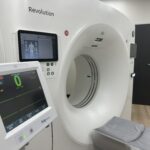A recent article from NBC News highlights the unique challenges that face young cancer survivors, and the increase of incidence in cancer in the 14-39 age range.
The article states:
“Cancer was once considered a disease of aging, but a 2020 study led by researchers at the Penn State Cancer Institute found that rates of all cancers among this younger age group have risen 30% since the 1970s.”

Long-Term health risks of cancer in adolescents and young adults
With this shift in prevalence, research is catching up to examine the effects of cancer diagnoses in young people, especially regarding the long-term health risks and concerns for those who experience a successful treatment plan to eliminate the immediate danger of cancer. Studies show that along with the incidence of cancer rising across this age demographic, adolescent and young adult (AYA) cancer survivors have increased risks of other conditions as well. Conditions ranging from hearing loss and circulatory issues, to heart disease, stroke, and various types of secondary cancers and leukemia appear more often in people who have experienced cancer treatment as an adolescent or young adult.
Because of this, regular checkups are essential, and special treatment guidelines are exercised to help guard against some of these long-term effects when treating young people.
Social and family effects
Young cancer survivors also have unique social and psychological needs.
“Once you finish the active treatment, like the surgeries and the chemotherapy, that’s when the hardest part comes,” said Schmidt, who survived through multiple operations, radiation and chemotherapy. “Because then you have to sit with your new reality and figure out what that looks like now.”
The uncertainty and difficulty of diagnosis can also bring many life aspirations into question. Many cancer treatments have major ramifications on the reproductive system, bringing into question the hopes and dreams of raising a family. This, along with the seriousness of the diagnosis, can make dating or finding a spouse more difficult. The interview subject of the NBC article, Gwen Schmidt, was diagnosed with Stage 4 colorectal cancer at age 21 and she testified to the unique difficulties of dating and marriage with infertility and a history of serious cancer.
As the medical world becomes more aware of the unique challenges of this demographic, and as this population grows, support will continue to improve.
Early detection is key
Early detection is key to improved treatment of cancer and so many conditions, regardless of age. Our vision at Visionary Wellness & Imaging is to help provide the opportunity to make informed decisions about their health, whether that be through the benefit of an early diagnosis, or through the peace of mind that comes with a clean scan. Our Full Body Scan offers a comprehensive overview of your heart, lungs, and other abdominal organs.
Contact us or use our chat feature to find out more about our scans and how we can serve you.
Read the original article from NBC News here.






